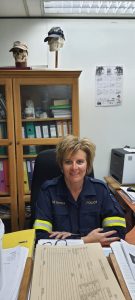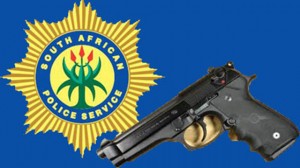In celebration of women’s month, the South African Police Service (SAPS) continues to celebrate its women who continue to break barriers in a male dominated environment.
Today, we introduce the nation to Lieutenant Colonel Meliza Pretorius.
The member has 31 years’ service having joined the organisation in 1990.
She boasts 27 years’ experience in the Facial Identification environment and is among the 20 female Facial Identification Analysts in the organisation.
A Facial Identification Analyst / Forensic Artist are specially trained to apply and combine interviewing skills with artistic ability in order to create a Facial Composition.
They render a scientific support service to investigating officers in order to identify suspects, unidentified deceased persons, missing persons and unique or scarce items linked to a crime.
Suspect identification include’s the use of artistic skills and highly specialized computer software to compile two dimensional image’s of suspects based on victim descriptions.
In order to obtain these descriptions, an in-depth experience of cognitive interviewing techniques is required.
In addition to artistic skills members must have a solid understanding of the study of facial anatomy, digital imagery, human memory, aging trends and victim psychology.
As a Facial Identification Analyst, Lt Col Pretorius is responsible for interviewing victim’s of crime especially where there is no forensic evidence available to enable analysts to compile a face of an unknown suspect. This with the aim of successfully placing the suspect at a crime scene.
Unlike fingerprints and DNA, which do not change during a persons life, facial identification has to take into account different factors such as;
*Ageing
*Plastic surgery
*Effects of drug abuse or smoking
*Facial features such as scars, tattoos, moles, piercings and other distinct facial features
In her illustrious career, the member has attended to numerous high profile cases where she interviewed traumatised victims and complainant’s in assising the investigation of various Crimes.
Her latest success includes the case involving a Serial Rapist in Benoni. A case which is still before a court of law.
Over a number of years, the Facial Identification team relied on the memory of numerous victims that could all recall a unique feature of the wanted suspect.
Her team compiled several facial compositions of the unknown suspect and thereafter published the image to present to victims. Following which, the identikit was then presented to the investigating officer to process.
Processing includes interviewing community members in the area where the suspect is operating and presenting them with the identikit of the wanted suspect.
Following the hard work of a multidisciplinary team, the wanted suspected was apprehended earlier this year and linked to numerous cases.
Over and above her day to day responsibiliities, the member provides training and support to other Facial Identification Analysts.
She has also presented and co-presented at various national and international conferences.
She continues to testify in her field of expertise in various regional and high courts in the country as well as abroad.
She confirms that Facial Identification plays an important role in the investigation of Crime.
In numerous cases, the only evidence is a face seen by a victim or a witness and such recollection can assist to identify a suspect and apprehend him/her for questioning.
Despite the compulsory wearing of a face mask due to the COVID-19 pandemic, the member says there is still vast positive feedback on arrests of suspects from the Detective’s regarding positive Facial Compositions and Comparisons compiled by her team.
The member says she finds joy in positively linking a suspect to a crime scene.
“It has always been my passion to make a difference to the communities we serve. There is nothing more that makes me proud than when we interview victims or complainants and compile a positive face of a suspect, ours is to continue to serve the people of this country with due diligence”.
To qualify as a Facial Identification Analyst, a member needs to be in possession of either a diploma or degree in Fine Arts or Graphic Art and/or undergo various training courses and workshops in the field of the subject.
To Lt Colonel Pretorius and other female Facial Identification Analysts that have assisted investigating officers in securing multiple life sentences for perpetrators of complex crimes such as murder, rapes, hijackings and a host of of other serious and violent crimes, we say thank you for making our country a much safer and better place to live in.









